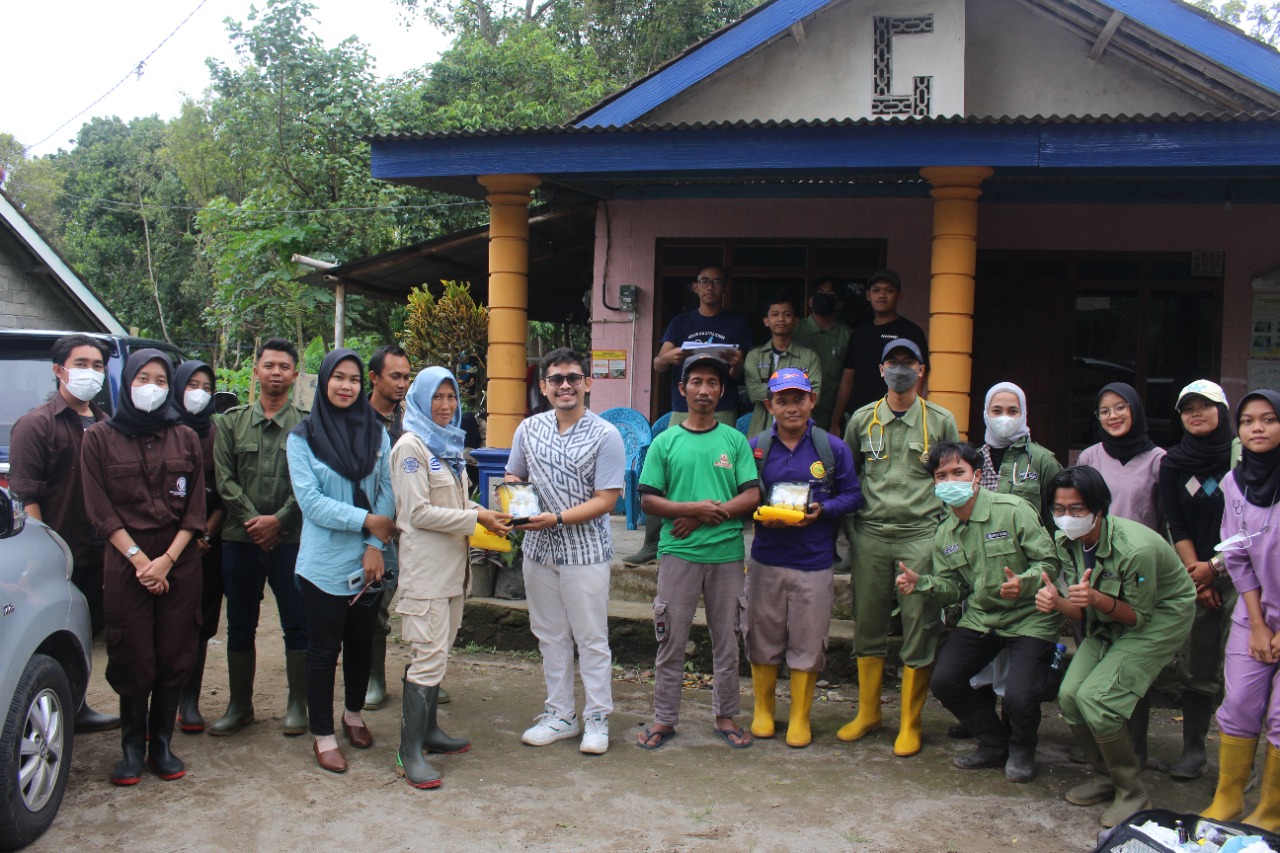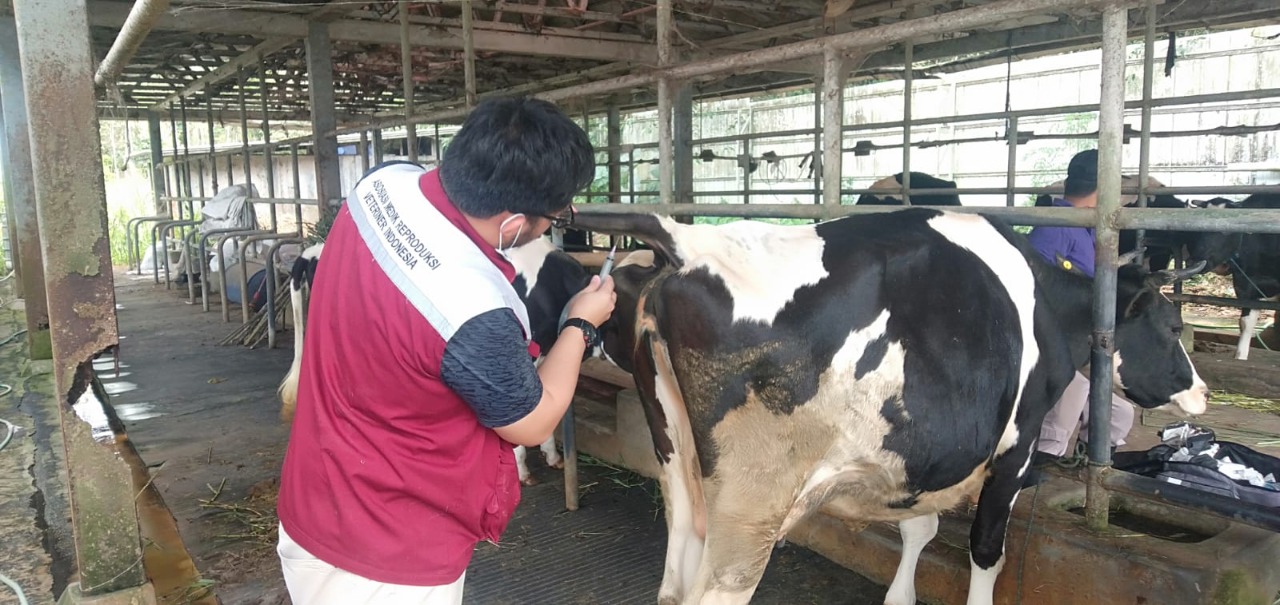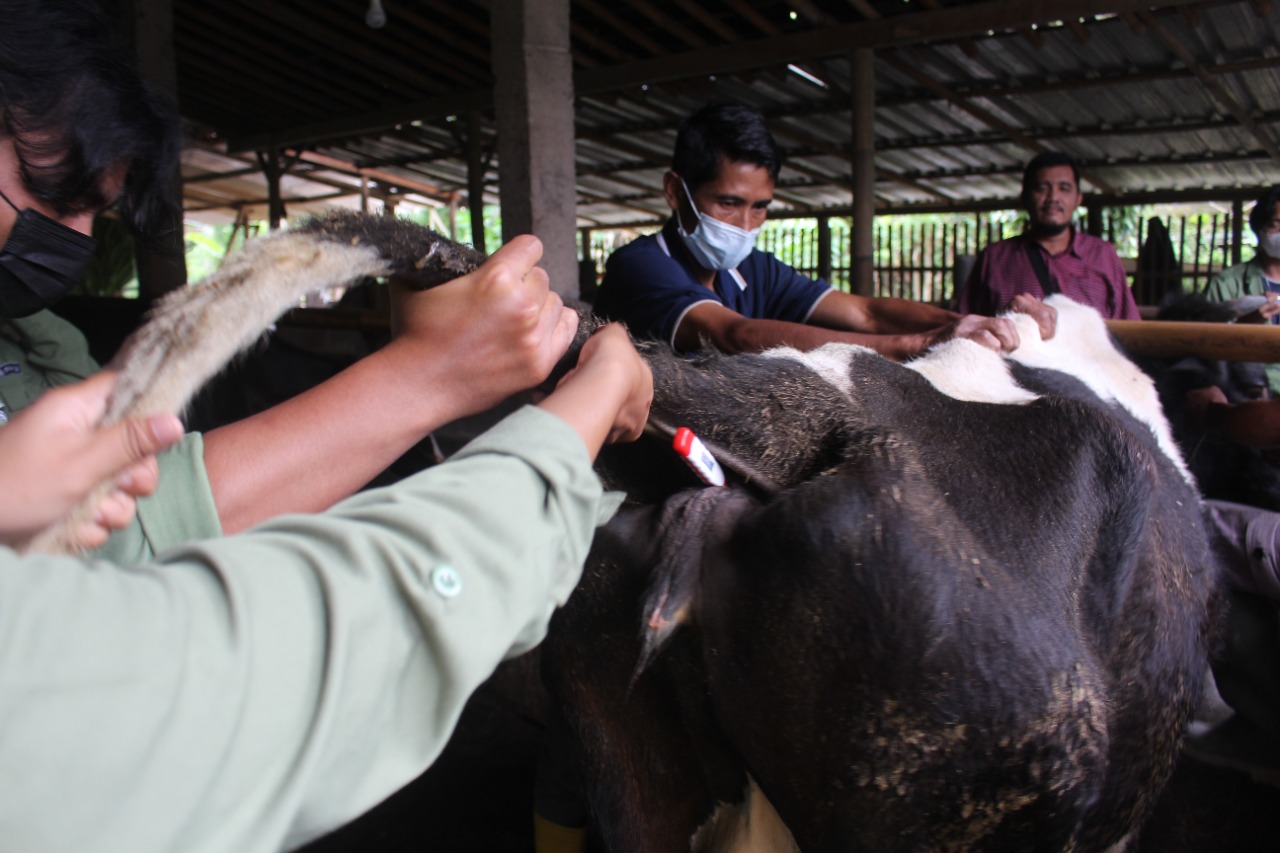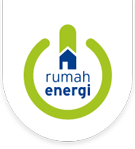Handling Outbreaks and Mouth and Foot Disease (FMD) Vaccination and Handling of Reproductive Disorders in Dairy Cattle with Sarihusada and Gadjah Mada University

Jakarta – December 2022, Indonesia was again hit by an outbreak of Foot and Mouth Disease (FMD) in early April 2022, after having been free from the plague for the last 36 years. The Ministry of Agriculture then designated PMK as an outbreak of an infectious disease in livestock in Indonesia as of May 7, 2022. The spread of the FMD outbreak has brought a large economy to the dairy farming business activities. The impact was a chain, in addition to dairy cows dying from disease, sick cows were eventually slaughtered with significant price reductions. While cows that recover milk production will decrease. In this regard, at the end of last June the Rumah Energi Foundation (YRE) held a discussion forum with experts and practitioners to gather information and appropriate countermeasures. The results of these discussions were then summarized into a pocket book, a Handbook for Prevention and Handling of FMD, which was distributed to farmers.
Since August 2022, YRE together with PT. Sarihusada Generasi Mahardika (SGM) and the Faculty of Animal Health, Gadjah Mada University (FKH UGM) intensively carried out a series of activities such as counseling, care, treatment, and vaccination of dairy cows owned by SGM-assisted breeder cooperatives in Klaten and Boyolali Regencies in Central Java Province as well as Sleman Regency in the Province of D.I. Yogyakarta. For 4.5 months, a total of 14 veterinarians conducted examinations, treatment and vaccinations. In addition, around 25 veterinary students take turns collecting data and co-assisting on cattle reproduction in each cooperative.

Within this timeframe, the details of the activities carried out are handling the health of cows that are sick with PMK and post-PMK recovery; implementation of Communication, Information, and Education (IEC) to farmers on the topic of FMD and Lumpy Skin Disease (LSD); implementation of biosecurity for the prevention of PMK; treatment of reproductive disorders in cattle aimed at increasing the pregnancy rate, improving reproductive performance and normalizing milk production; as well as PMK programs.

With the support of administering 300 doses of vaccine from the Boyolali Regency Animal Husbandry and Fisheries Service, 150 dairy cows KJUB Puspetasari in Banyusri received the first dose of PMK vaccine on December 27, 2022. Farmers’ acceptance of the vaccine and the health condition of the livestock is an important key in the vaccination process to increase immunity cattle against PMK.
As of December 2022, as many as 317 dairy farmers have succeeded in obtaining education through counseling by the UGM Faculty of Veterinary Medicine and independently by cooperatives. As for medical treatment for dairy cattle, a total of 199 sick cows have been examined and given the necessary treatment, such as: vitamin and nutritional therapy, hormone therapy, and treatment of infections and abscesses. Approximately 70% of all cows receiving medical treatment are given hormone therapy (GnRH and PGF2a) for reproductive recovery after PMK in order to stimulate the normal reproductive cycle again so that the cows can become pregnant. Because the reported condition had recovered after receiving treatment, a total of 244 cows received artificial insemination (AI). From the AI carried out by the cooperative, 87 cows became pregnant again. Meanwhile, the recovery rate for cows that were examined and given treatment reached 90%.
Written by: Danastri Widoningtyas
Edited by: Fauzan Ramadhan

